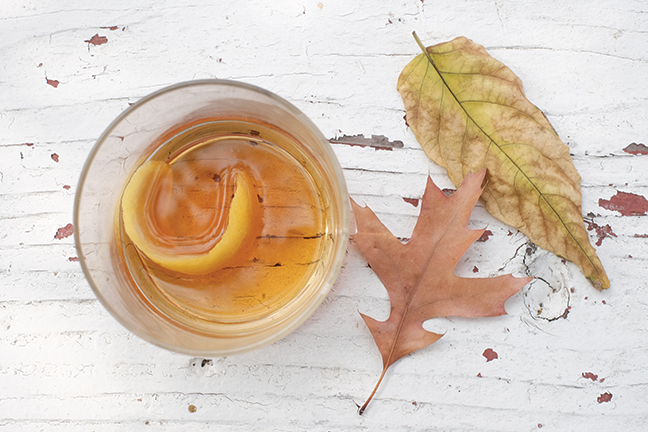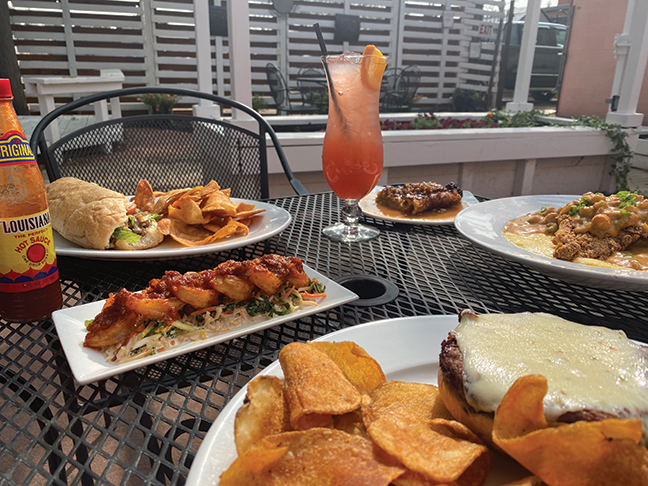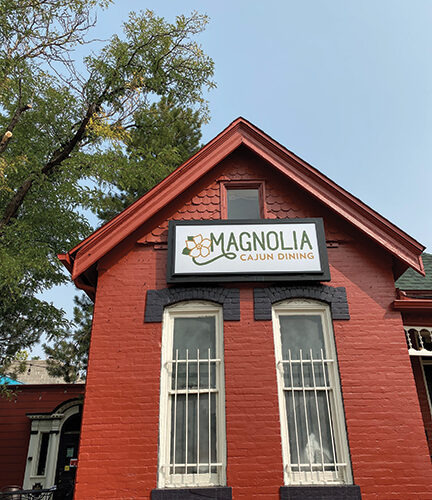Eric McDaniel was born and raised in Louisiana. His soft spoken nature, and kind smile don’t give way to the fact that he happens to be a magician in the kitchen. He has cut zero corners, and has taken his knowledge and experience for the culture to bring authentic Cajun cuisine to Denver, and we are all better for it. Meet the man behind Magnolia.
Authentic Louisiana cuisine is hard to come by in land-locked Denver. Being born and bred in Southern Louisiana, you have a lot of years under your belt perfecting the art of Cajun food. Can you give us a little peek into how you began cooking at the young age of 16?
When I was a teenager, my parents bought a country store with a specialty meat market and deli which sold “plate lunches.” The plate lunch is a huge part of Cajun culture. Many gas stations, convenience stores, grocery stores, and restaurants serve them up 5 days a week. A plate lunch usually consists of some sort of braised economy cut of meat, served with its gravy (thin, natural cooking jus) over white rice with one or two vegetable sides. Some of the first influences I had came from the women who made the plate lunches at my parents’ store. I spent most of my time working in the meat market, making gratons (pork cracklins) and boudin (traditional cajun sausage) as well as breaking down and preparing other specialty Cajun meat products. I would cut meat, cook cracklins, case sausage, and help the cooks when I could. This experience shaped my entire future, instilling in me a love of simple Cajun cooking and butchery, and inspiring me to bring Cajun food and culture to other parts of the country.
 It is clear that you take the art of this culture quite seriously, and wouldn’t dream about using inadequate ingredients. Can you tell us a little more about how you source your seafood and bread?
It is clear that you take the art of this culture quite seriously, and wouldn’t dream about using inadequate ingredients. Can you tell us a little more about how you source your seafood and bread?
Months before opening Magnolia, I called around to many of the vendors I used in Louisiana and connected them to distributors here in Denver. Our red beans are from Camellia Beans in New Orleans. Our French bread is from Leidenheimer Bakery in New Orleans. For years, this bakery has provided the city with French bread for po-boys at many well-known restaurants. If you have had a po-boy in New Orleans, it is likely that you have had bread from Leidenheimer. To truly recreate the South Louisiana po-boy experience, we insist on serving the best French bread New Orleans has to offer – even in Denver. So if you are craving a real New Orleans po-boy, you can get one at Magnolia.
We do not compromise when sourcing seafood either. We serve exclusively Gulf shrimp and Louisiana crawfish. Our catfish is sourced from either Mississippi or Louisiana as well. We have committed to only using the best ingredients – the same ingredients we used in Louisiana.
 For our readers who haven’t been lucky enough to taste your menu yet, can you tell us about some of your signature dishes?
For our readers who haven’t been lucky enough to taste your menu yet, can you tell us about some of your signature dishes?
Food is such a large part of Cajun culture. Every event – joyous or sorrowful, religious or secular – revolves around what is on the table. I try to replicate that attitude at Magnolia – the food is our focus, which is why we make every effort to source authentic Louisiana ingredients. I take it very seriously, because the food is part of our culture and heritage. Cajun cuisine’s roots are in French country peasant food, but the dishes were adapted and shaped by the ingredients in the area. Gumbo may be the most quintessential Louisiana dish, and you’ll see different variations of it throughout the state. Ours is Cajun gumbo, and is very much like any gumbo you would find in my hometown of Lafayette. The roux is very dark, almost black. We add “trinity” vegetables, dark meat chicken and our homemade smoked andouille sausage. The broth simmers for hours and takes on the bitter flavor of the roux as well as the richness of the chicken and smokiness of the sausage to create an unmistakable flavor. We are also very proud of our crawfish étouffée. We feature our étouffée on top of a fillet of cornmeal-crusted catfish and also offer it by the bowl with white rice. Both dishes are very comforting and rich.
Being a restaurant owner in the time of COVID is not for the faint of heart. How have you and your staff shifted from pre-pandemic days?
There are so many changes that have happened in such a short period of months for all Colorado restaurants. We, like many other restaurants, have had to make tough decisions regarding labor and food costs. We have updated our menu to include more items like po-boys, that are carryout friendly. We also have changed our style of service so that we’re offering counter service instead of having servers at the customer’s table. Nowadays, customers will find our menu at their table via a scannable QR code. Once customers decide what to order, they do so from our server at the bar. We still strive to offer attentive, friendly service from a distance and try to make people feel like they are at home when they are at Magnolia. I anticipate that many of the changes we’ve made in response to COVID-19 will continue into 2021 at least.
 Arguably one of the only benefits in the restaurant industry to come from the pandemic, is that you can now order from the bar to go. Talk to us about your Happy Hour.
Arguably one of the only benefits in the restaurant industry to come from the pandemic, is that you can now order from the bar to go. Talk to us about your Happy Hour.
As a Louisianian, I am very much accustomed to ordering alcoholic drinks for takeout. Louisiana has had bars and daiquiri shops with drive-thu windows my entire life, so the idea is not foreign to me. I think that CO allowing drinks to go has been a great silver lining, and I hope that it becomes permanent. We offer a wide range of alcoholic beverages including some French Quarter classics like the hurricane and the sazerac. Our happy hour deals are also available to go. We have some great happy hour specials from 3-6pm Tuesday-Friday: $5 hurricanes, 2 for 1 draft beer, $5 burgers, and 2 for 1 oysters on the half shell (raw or charbroiled). We also offer 50% off on bottles of wine with takeout orders.
What advice would you offer to a budding chef eager to open and run a restaurant?
Be prepared. Expect unexpected expenses. A chef-turned-restauranteur will need to build up his or her skills in the office and in the front of house. There is so much more to running a successful restaurant than having great food; you have to balance a budget, attain and maintain the necessary permits, manage FOH and BOH staff, and be comfortable talking to customers. Your day is 90% office and 10% customers and food, and this shift can be a challenge for a chef who is used to being the kitchen all the time. A chef looking to open a restaurant should have a very clear vision when starting out. Do not jump too quickly into a lease if the building/location is not ideal for your vision. Take your time and find the right place, even if it takes a few years.
Most of your family remains in Louisiana, but you clearly have a close relationship with your staff. Can you tell us more about your Magnolia family?
We are all very close. I consider some of the staff to be family. A large portion of our staff is from Louisiana and I have known some of them for decades. In fact, some of us have worked together since we were kids at my parents’ store and at several other restaurants over the years. I miss my family very much, but having all these connections from home helps in a big way.
Your location is in a prime spot on S. Broadway. Do you know the history of the house that is now home to Magnolia?
I have heard some stories about the house from our landlords, neighbors, and ghost hunters! It is a Queen Anne style home built in the late Victorian era around 1894. At that time, our part of South Broadway was located in the city of Platt Park, before the neighborhood was incorporated into the city of Denver in the 1930’s. It was used as a home until the 1970’s when it was partially converted into an antique store. The antique store owner decided to lease it out in the 1980’s, and it has been home to a number of bars and restaurants until the present day. Several people claim to have seen ghosts or experienced strange phenomena in the building. We love that the building has such a rich history in the neighborhood.
We are big believers in the importance of supporting local eateries, especially one like Magnolia, where the chef and staff are so clearly passionate about their craft. What is one thing you wish the Denver community knew about your industry?
I would like the Denver community to value the hospitality industry and recognize that a thriving restaurant scene contributes to a more vibrant overall culture in the city. Independent restaurants need the support of the community now more than ever. We all want a food scene that is unique and reflects the character of the city.
Eric, thank you so much for taking the time to tell us your story and painting the picture of your early life in the deep south. It is beyond apparent that you have put every ounce of passion into your culinary art. Denver is lucky to have a taste of Louisiana right here inside the walls of Magnolia.

